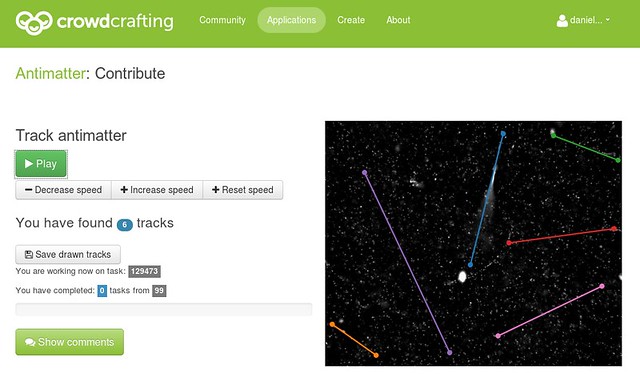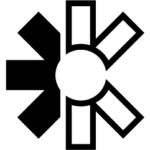Press Release: Geneva, 17 September 2013
Speaking at the Open Knowledge Conference, the world’s leading event on open data, Co-director of the Open Knowledge Foundation, Rufus Pollock, announced today that the open-source platform Crowdcrafting has grown to accommodate over 120 projects, making it the world’s most diverse open-source platform for online citizen science and crowdsourced data analysis.
Crowdcrafting is a collaboration between the Citizen Cyberscience Centre and the Open Knowledge Foundation, launched six months ago. Since its launch, a number of important projects have been built and developed using the tool.

The project ForestWatchers, for example, enables citizen-based monitoring of the deforestation in developing regions. Built on Crowdcrafting’s open source technology, it has received the support of the Open Society Foundations for a second phase in which local knowledge from citizens in the field can be integrated with the maps produced by online participants.

Another project, Rural GeoLocator comes from the Public Health Computing group at the Swiss Tropical and Public Health Institute in Basel. The goal of this application is to help the SolarMal project, which studies the potential of innovative mosquito trapping technologies for malaria control. The geo-locations of the houses will be used to inform the project logistics and analysis of the SolarMal project.
Other projects that run on Crowdcrafting include “Does Antimatter fall up or down?” an application exploring the effect of gravity on antimatter.; Air quality with lichens to analyse and classify lichens as indicators of air pollution levels; and the Shell JIV transcription project which aims to transcribe the locations of oil spills in the Niger Delta from documents provided by Shell. Recognizing the broad power and potential of this platform, the Shuttleworth Foundation this month awarded one of its prestigious fellowships to the lead developer of Crowdcrafting, Daniel Lombraña González of the Citizen Cyberscience Centre.
Recent new developments have extended the scope of Crowdcrafting to include the collection of sensory information via mobile phones. Seamless integration with the Open Knowledge Foundation’s flagship CKAN database for open data means the tool will form an important part of the future of open science.
John Ellis, keynote speaker at Open Knowledge Conference, and world-renowned theoretical physicist at CERN and King’s College London commented:
“I was amazed how students at the CERN Webfest in August could turn CERN data on antimatter into a new citizen science project within just a weekend. This shows the power of the Crowdcrafting platform.”
Also speaking at Open Knowledge Conference, Francesco Pisano, director of research for the UN Institute for Training and Research, one of the founding partners of the Citizen Cyberscience Centre, remarked:
“Crowdcrafting is more than just a tool for basic science. Our UNOSAT programme is adapting the technology to efficiently combine the strength of volunteer computing with the work the UN and many NGOs have to do in generating information and assessments after natural disasters and other humanitarian crises.”
Denis Hochstrasser, vice-rector for research at the University of Geneva, which is hosting the Open Knowledge Conference satellite event on Open and Citizen Science, added:
“I’m proud that the Crowdcrafting platform is based here at University of Geneva. And I’m personally convinced that this grass-roots approach to citizen science will have a large impact on biomedical research, a core competence of our University. This is an area where increasingly, communities of patients are pro-actively collecting and analyzing their own medical data.”
ENDS
Crowdcrafting will feature in a special satellite event on Open and Citizen Science at this week’s Open Knowledge Conference in Geneva, where Daniel Lombraña González will be helping prospective new users set up their projects.
The official voice of the Open Knowledge Foundation.










Really interesting, thanks!
I think that you would be really interested in some recent research that I have come across about crowds and citizen science. In particular I feel you may find these two emerging pieces of research very relevant:
The Theory of Crowd Capital
http://papers.ssrn.com/sol3/papers.cfm?abstract_id=2193115
The Contours of Crowd Capability
http://papers.ssrn.com/sol3/papers.cfm?abstract_id=2324637
Powerful stuff!